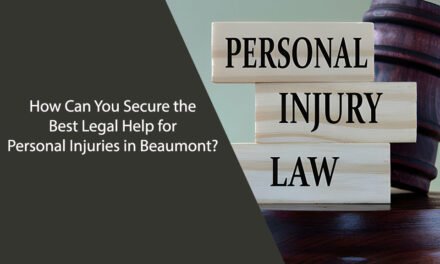
Finding yourself in an accident can be a stressful, overwhelming experience. Knowing the legal steps you need to take to protect your rights and obtain any compensation you might be owed is essential. One excellent way to do this is by seeking advice from a qualified lawyer specializing in personal injury law. When meeting with a lawyer after an accident, certain questions should be asked. These questions will help ensure that you have all of the information needed for your case so that it is handled properly and efficiently.
Table of Contents
1. What type of compensation am I entitled to?
After an accident, you may claim compensation for medical expenses, lost wages due to missed time from work, and other damages. It is essential to understand the different types of compensation available to you and how they might apply to your particular situation. A lawyer can help assess your specific case and provide an explanation of the various forms of compensation you might receive
Compensation will vary depending on various factors such as the severity of injury or damage caused by the accident, amount of liability established against the at-fault party, insurance coverage, victim’s negligence (if any), etc. Experienced personal injury attorneys from NJ Injury Guys Fords, NJ, also add that facts and circumstances surrounding the incident, including who caused or was responsible for the injury, their insurance coverage limits and/or ability to pay damages, as well as the severity of the victim’s injuries, should be considered. So if you get injured in an accident, your personal injury lawyer will provide answers to questions related to your rights under the law and advise you on appropriate legal action that should be taken to obtain the compensation you deserve.
In addition to a settlement or legal award, those injured due to an accident may also be eligible for compensation such as pain and suffering, emotional distress, reduced quality of life, etc. Again, an experienced lawyer can answer questions about these types of damages and explain how they apply to your situation.
2. How long do I have to file a claim?
Ask a lawyer about the timeframe for filing a claim after an accident, as the statute of limitations for filing personal injury claims varies from state to state. Generally, states require that personal injury claims be filed within two years of the date of the accident to be considered valid. Depending on your state’s laws, this time frame can vary significantly and should not be overlooked. An experienced attorney can advise you on the specific law applicable to your case. Additionally, they can also help ensure that all paperwork is filed timely and correctly so that you may receive maximum compensation for damages incurred due to an accident.
Notifying relevant parties about your intent to pursue legal action and filing your claim on time is crucial to the success of your case. By contacting and consulting an attorney, you can be informed of all the necessary steps that must be taken and how long you have to file a claim. This will give you peace of mind knowing your rights are being upheld.
3. What evidence do I need to prove my case?
Having evidence is often the key to winning a case. To prove your case, you must gather and present evidence supporting your legal claim. For this reason, it is important to ask a lawyer after an accident what evidence you should collect in order to strengthen your case. This can include photos of the scene, witness statements, relevant medical documents, and other information that could help demonstrate liability or damages. A lawyer will be able to tell you what specific kinds of evidence may be necessary for proving your case, as well as how best to preserve it. Asking a lawyer after an accident, “What evidence do I need to prove my case?” is essential for ensuring that you are adequately prepared when going into a legal situation.
Gathering the right evidence can be crucial in helping you win your case, so it is important to get professional advice on this matter. A lawyer will also be able to advise you on what should not be included and if any other aspects need to be considered. With their help and guidance, you can ensure that your case is presented in the best possible way.
4. Should I accept a settlement offer?
After an accident, a settlement offer from the other party may be tempting. However, it is important to understand why you should consult a lawyer before accepting any settlement after an accident. A lawyer can provide invaluable advice and help ensure you receive the compensation you are entitled to for your injuries or losses.
When asking whether you should accept a settlement offer, your lawyer will consider factors such as the value of your case, liability (whether the other party is at fault), available insurance coverage, and potential future medical costs. A qualified attorney will also work to negotiate a higher amount than what was initially offered by the other party or their insurer
In addition to evaluating the financial aspects of the situation, having legal representation during settlement negotiations can also protect from potential legal complications that may arise in the future. Having a lawyer on your side will ensure you understand the settlement agreement and its implications before signing.
5. What if there are multiple parties involved?
If more than one party is responsible for causing the accident, things can quickly become complicated. A qualified lawyer can help you navigate this situation by determining who is liable and ensuring that all parties are held accountable for their actions.
6. Is there a cost-benefit analysis of going to court?
Your lawyer should be able to explain the costs associated with taking legal action and what kind of benefit you could receive from doing so. This will help you make an informed decision about whether or not it’s worth pursuing a lawsuit
7. Do I have to go through a trial if I decide to pursue a claim?
Your case will not have to go all the way to trial if both parties can agree on a settlement out of court. However, if negotiations fail, then it may be necessary for your lawyer to take the case in front of a judge or jury
8. Are there any other options besides a lawsuit?
Depending on the specific circumstances of your case, there may be other alternate forms of dispute resolution that could potentially yield better results. For example, arbitration or mediation may be preferable to a trial in some cases. Your lawyer should be able to advise you on which route is best for you

It is important to know what questions to ask a lawyer after an accident so that you are fully informed about the legal process and your rights. Asking these eight questions when meeting with your personal injury attorney can help ensure that your case is handled properly and efficiently, giving you peace of mind throughout the entire ordeal. With the right information and guidance from an experienced professional, you can get the compensation you deserve.




